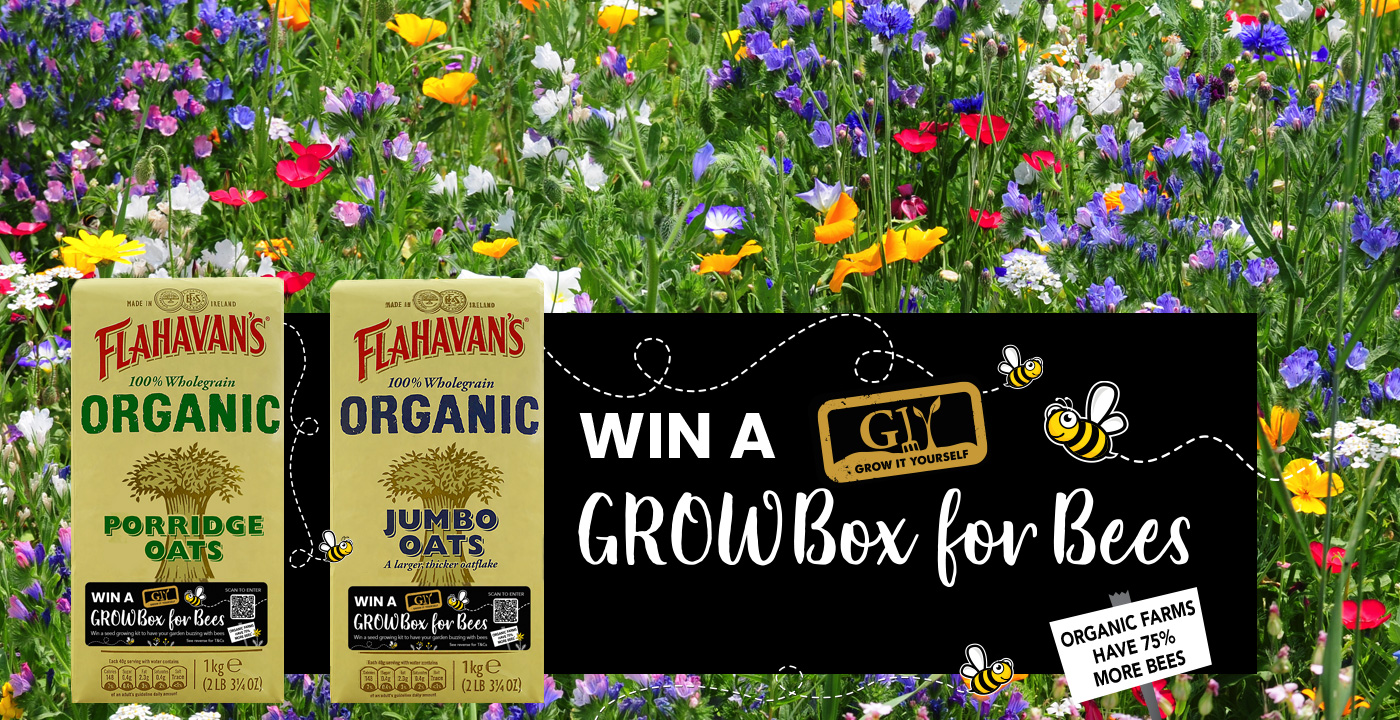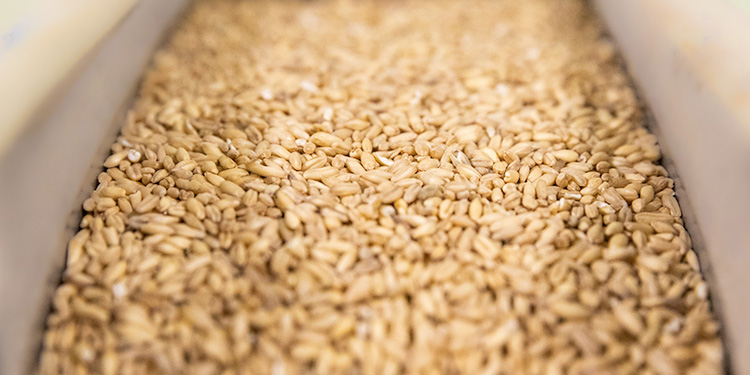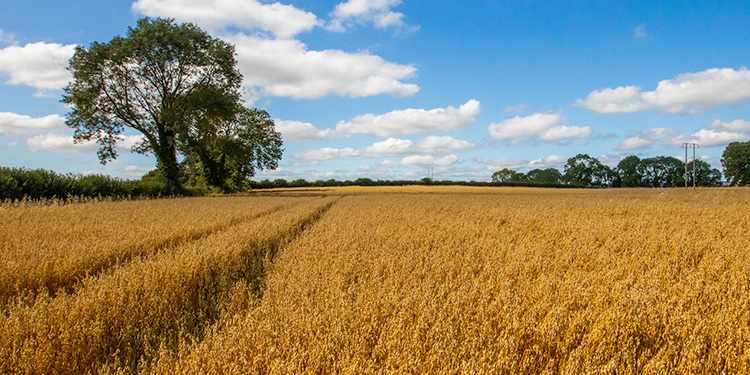This website uses cookies so that we can provide you with the best user experience possible. Cookie information is stored in your browser and performs functions such as recognising you when you return to our website and helping our team to understand which sections of the website you find most interesting and useful, and if you clicked on an advert and went on to purchase a product.
Ireland’s Favourite Organic Oats
Here at Flahavan’s we’re very proud of our Organic Oats, sourced from a network of over 180 organic farmers across the country.
Organic Oats are grown in harmony with nature, but did you know that organic farms have 75% more bees*?
To celebrate all the bio-diversity on organic farms and create a buzz in your garden, we’ve linked up with GIY.ie to give you a chance to win pollinator-friendly seedkits this April and May.
Don’t forget to try our delicious creamy Organic Oats and Organic Jumbo Oats and experience why we’re Ireland’s favourite Organic Oats for yourself! Promotional packs available in stores nationwide now.
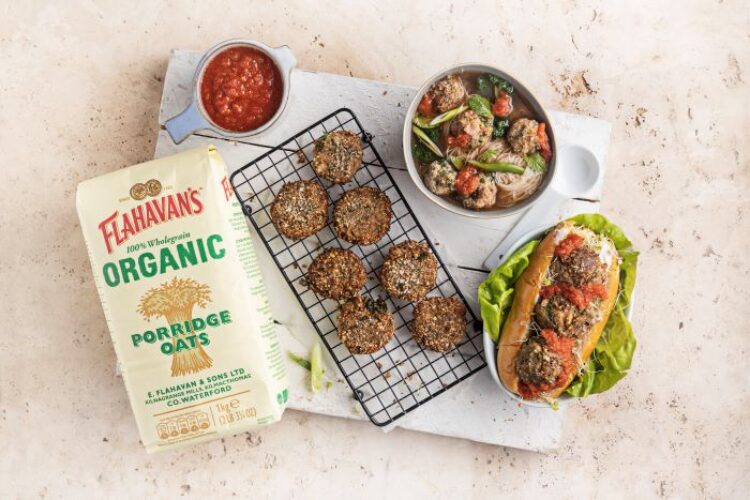

WIN a “GrowBox for Bees”seed kit!
Be in with a chance of winning a seed growing kit from GIY and make your garden a haven for bees!
We’re giving our Organic Oats fans a chance to win a GIY.ie seedkit throughout April, May and June 2024. Simply complete the entry form below and we’ll be randomly selecting 25 winners each week over the coming eight weeks.
Competition runs until 14th June 2024. For full terms and conditions, click here.
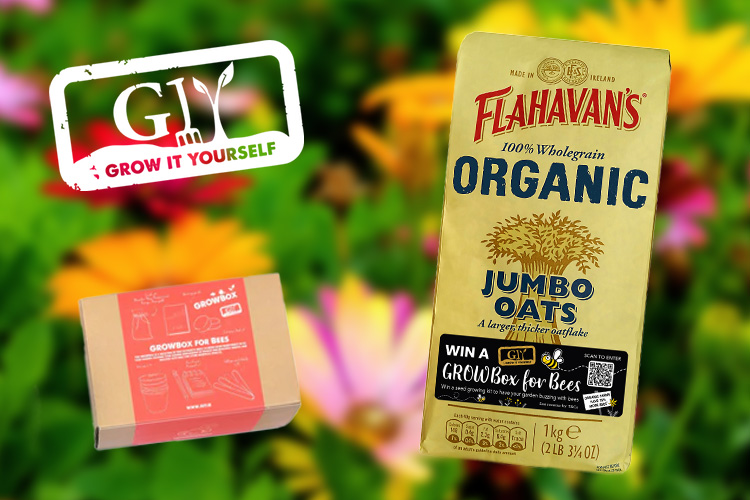
What’s in the “GROWBox for Bees”?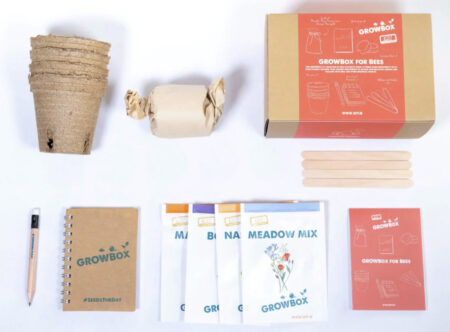
The box contains everything you will need to make your garden a haven for bees this Summer:
- 4 Seed Packs – Nasturtium, Meadow Mix, Borage, Marigold
- Pots & Compost
- Labels
- A Notepad & Pencil for you to jot down your progress!
Get growing quickly once you receive your GROWBox for Bees!
- Nasturtium – Sow in April, May, June, July
- Meadow Mix – Sow in April, May, June
- Borage – Sow in April, May, June
- Marigold – Sow in April, May, June
A note from the GIY.ie Head Gardener: Meadow mix would ideally be sown April/May but later sowing should also be possible. Other seeds in the GROWBox could be sown into June.
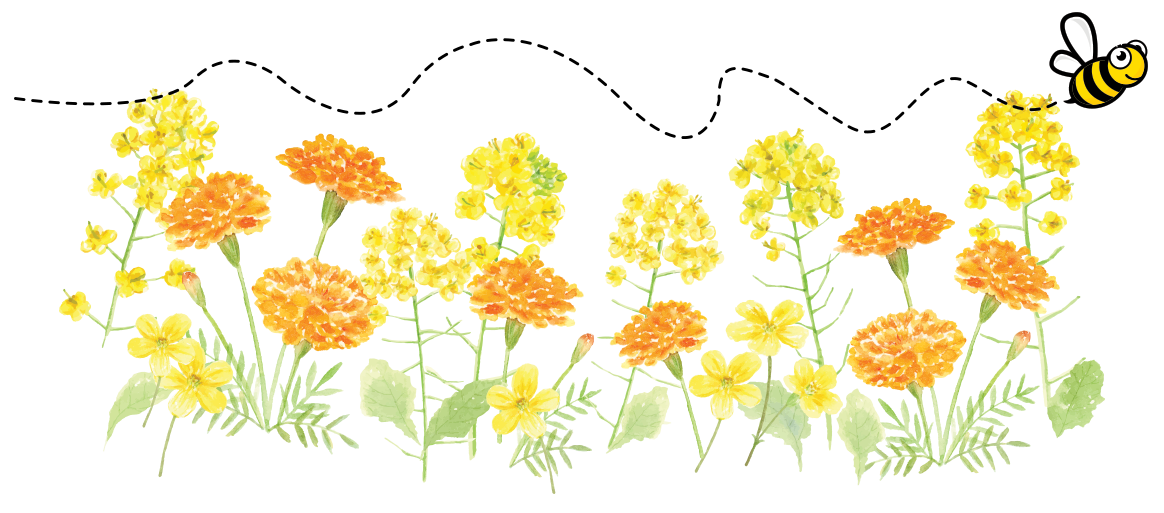
Make your garden pollinator friendly!
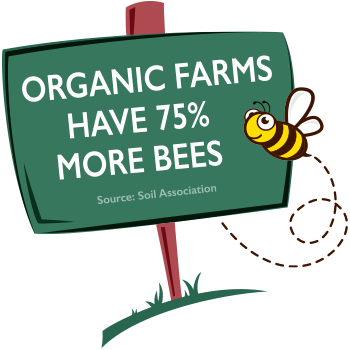
Pollination is one of the most important biological processes on our planet. And bees one of the most important pollinators. But what is pollination and why is it so important?
What is pollination?
Pollination is the transfer of the pollen grain from the stamen (the male part of the flower) to the stigma and egg (the female part of the flower).
It is through pollination that plants are fertilised and able to produce the next generation of plants, including the fruit and crops we eat.
Since plants can’t move, they have to employ other tactics to ensure pollen is carried from flower to flower.
Some plants rely on wind and water, most flowering plants reproduce through animal pollination.
Around 75% of crop plants require some degree of animal pollination, including many of our everyday fruit and vegetables. Of all the different animals and insects that serve as pollinators, the most important are bees.
Bees and pollination
In the past we relied on wild bees to pollinate our crops but wild bee populations are now in decline due to disease, extreme weather, competition from invasive species, habitat loss and climate change.**
Indeed, one third of wild Irish bee species are threatened with extinction. The All-Ireland Pollinator Plan is an island-wide initative developed to help restore pollinator populations to healthy levels. All of us have a role to play, and gardens of any size can make a big difference.
Here are ten tips for helping pollinators in your garden, farm or community!
** Kew.org


